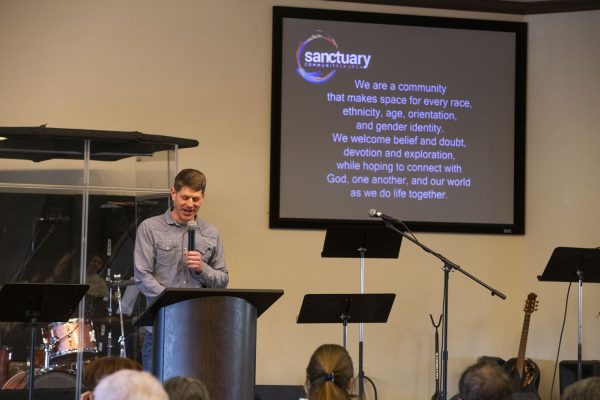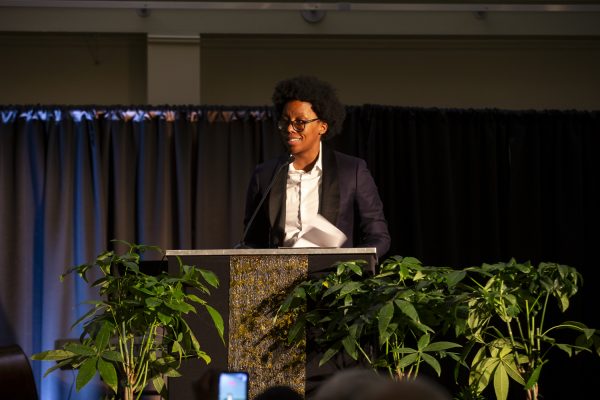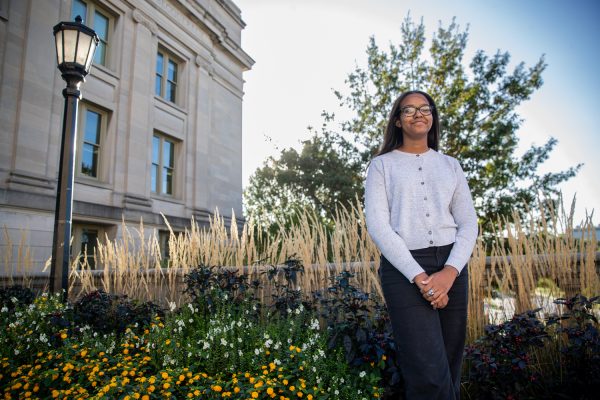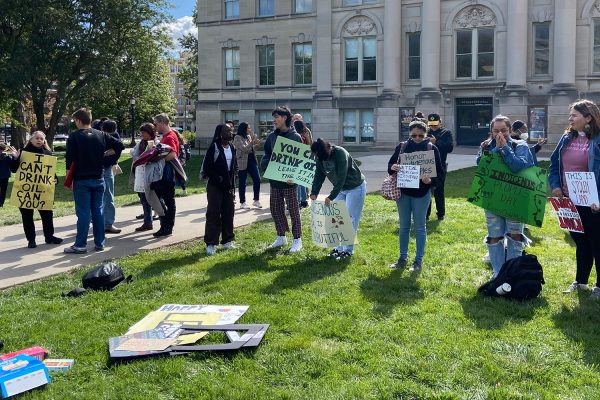UI community members embrace Hispanic and Latino/a/x culture
As Hispanic and Latino/a/x Heritage Month begins, members of the UI community discuss the impact of the culture in Iowa and their own lives.
September 14, 2021
Hispanic and Latino/a/x students make up the largest portion of the minority student population on the University of Iowa campus. As National Hispanic Heritage Month begins, UI community members are embracing and celebrating both cultures in Iowa and in their own lives.
National Hispanic and Latino/a/x Month is celebrated from Sept. 15 – Oct. 15 and honors Hispanic and Latino/a/x cultures. The month was initially Hispanic Heritage Week, when it was signed into law by President Lyndon B. Johnson in 1968. President Ronald Reagan expanded it to a month in 1988.
The start date, Sept. 15, marks the anniversary of independence for the Latin American countries Costa Rica, El Salvador, Guatemala, Honduras, and Nicaragua. Mexico celebrates its declaration of independence from Spain on Sept. 16. Chile celebrates independence from Spain on Sept. 18, and Belize celebrates independence from Great Britain on Sept. 21.
Although Hispanic and Latino/a/x are often used interchangeably, they represent two different groups: Hispanic refers to people who speak Spanish and are descendants of Spanish-speaking countries while Latino/a/x refers to people who descended from Latin America.
The Hispanic and Latino population is Iowa’s largest racial or ethnic minority. The estimated Latino population was 198,550 people in 2019, which makes up 6.3 percent of the state’s total population. This was a 140.7 increase in the population since 2000, and the projected population is now 407,541 for 2050.
The state is home to 39,791 Latino families, 70.2 percent of which include related children under age 18.
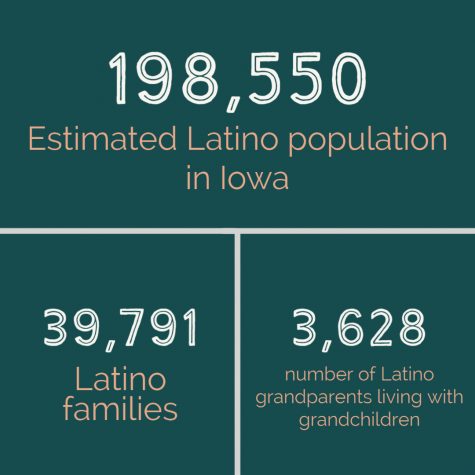
Claire Fox, a UI professor in the departments of English and Spanish & Portuguese, has dedicated her research to studying the Latino/a/x population in the Midwest. Her primary interests include literary and cultural studies of America, Latino/a/x American culture and literature, visual culture, and cultural policy.
Fox joined the UI faculty in 2001 and co-founded the Latina/o/x studies minor alongside former UI professors Omar Valerio-Jiménez and Santiago Vaquera-Vásquez. The minor was developed through a series of Latino/a/x Midwest events held at the UI from 2012-2013 and sponsored by the Obermann Research for Advanced Studies.
Fox, Valerio-Jiménez, and Vaquera-Vásquez were also co-editors of The Latina/o Midwest Reader, a publication that included interdisciplinary essays on the history, culture, and politics that define the Latino/a/x Midwest.
Fox is currently planning a community-engagement course within the Latino/a/x minor, where students will work with local Latino/a/x community centers. She is also continuing her research as a co-principal investigator on the “Building Sustainable Worlds: Latinx Placemaking in the Midwest” project funded by the Humanities Without Walls Consortium.
Fox said the uniqueness of the Latino/a/x Midwest population inspires her research. While visiting Hampton, Iowa, a town with a large Latino/a/x population, she was excited to see the development of entrepreneurship and the arts. Many new businesses were focused on community-based food practices and had women in leadership roles.
Rural and small-town communities can rarely point to a distinct neighborhood or district with a large and long established Latino/a/x presence, Fox said. Because of this, storytelling and theatrical performances play an important role in transmitting knowledge and culture in the community.
Additionally, she said she was impressed with Iowa activism around immigration rights, because it is a vital component of Latino/a/x history.
Hispanic and Latino/a/x students make up 7.4 percent of the student population at the UI. Fox said the steady increase of Latino/a/x students is exciting because many are from Midwest communities who have the intention to return home for community-based work.
Fox has seen the university recruit many Latino/a/x students from the Chicago area, but said many students come from the Iowa region as well.
“A lot of students are interested in fields like education, health care, or nonprofit organization,” Fox said. “Individuals who gravitate toward those fields seem really dedicated to community work and making a difference.”
Uriel Campos-Padilla, a first-year UI student studying music and health and human physiology, comes from a Hispanic immigrant family.
While Campos-Padilla was born in Los Angeles, California, his mom is from Mexico and his dad is from Venezuela. Campos-Padilla is bilingual in Spanish and English because his parents spoke both languages to him when he was growing up.
Campos-Padilla said that one way his culture has influenced his life was growing up eating traditional Hispanic food. A typical dinner at his family’s household would consist of red Spanish rice, beans, and chicken.
During the holidays, his family would make more special food. Campos-Padilla said his mom’s side of the family would make pozole, a soup that consists of ingredients such as hominy (a variety of corn), chicken, and onion. When he would celebrate with his dad’s Venezuelan family, they would eat hallacas, a traditional tamale dish.
Hallacas was historically a food for enslaved people in Venezuela, Campos-Padilla said.
“Usually, the way they would make it is take whatever table scraps they could find, and make it into their own dish,” Campos-Padilla said.
Campos-Padilla said he hopes to visit Venezuela and Mexico in the future.
Jennifer Lane-Murcia, a UI senior from Evanston, Illinois, comes from a family of Colombian immigrants. Lane-Murcia celebrates Hispanic Heritage Month by taking time to appreciate her culture in little ways, she said, but added that she places more importance on Colombian holidays, like Colombian Independence Day on July 20, than on American ones. Lane-Murcia’s family does not celebrate Hispanic Heritage Month at all.
“I think it’s just the time to really like, celebrate Hispanic people and their voices,” Lane-Murcia said. “It’s a good time to listen.”
Lane-Murcia said it was a huge culture shock for her when she first arrived at the UI, going from her Colombian family to a majority white campus, but she has since found her own community.
“It allows me to show people the beauty of my culture because I feel like a lot of people aren’t really used to it,” Lane-Murcia said.
She added that her identity as a Colombian American influenced how she lives her life in a unique way.
“I speak Spanish fluently. I think in Spanish a lot,” Lane-Murcia said. “I say some things in English a little differently, eat different foods than people do, and just have a different perspective on the world.”







